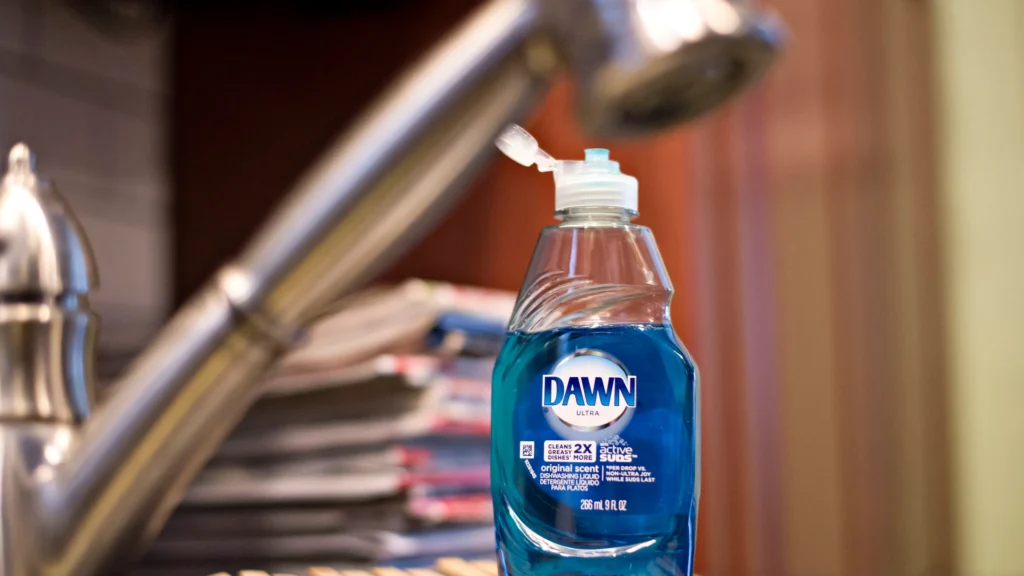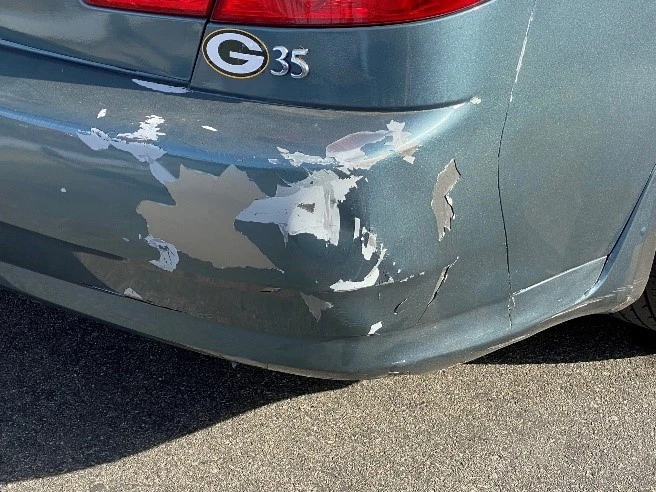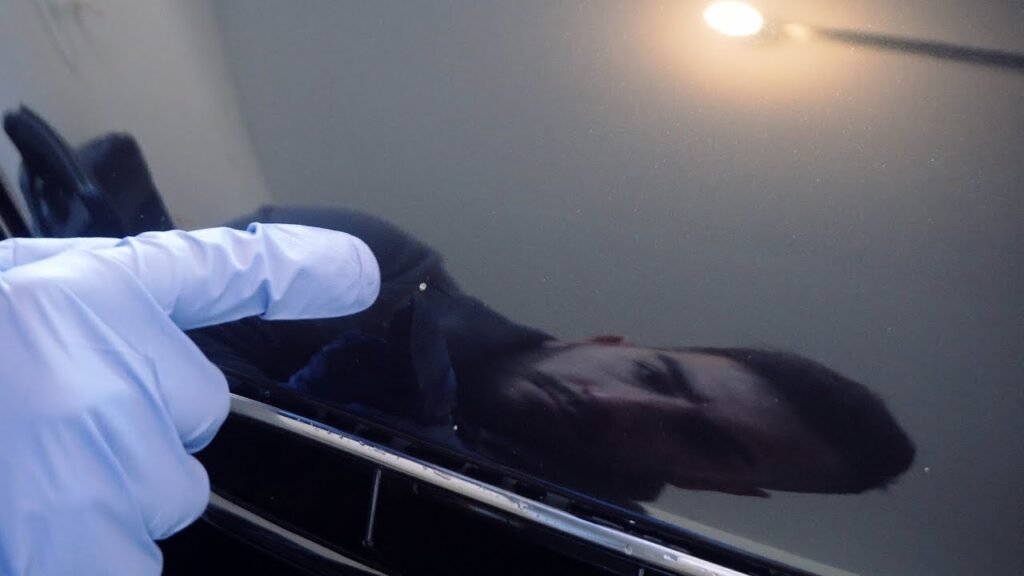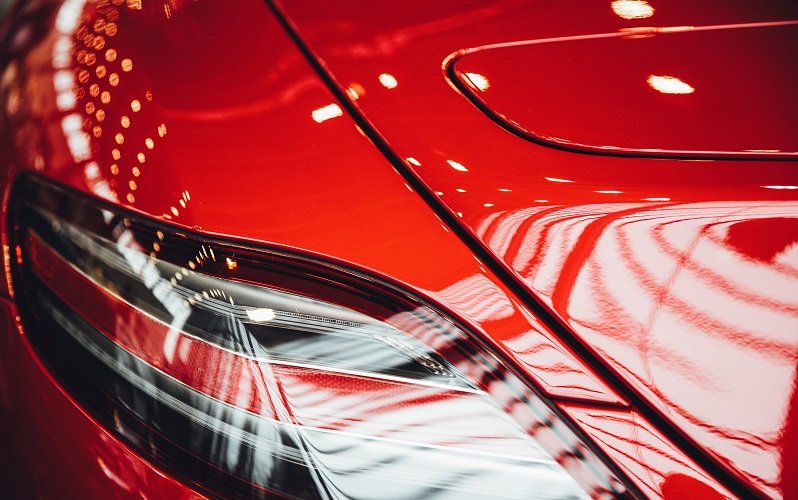Introduction
The debate over whether dish soap is suitable for washing cars has been ongoing for years. Some swear by its effectiveness, while others vehemently oppose its use, citing potential damage to paint and finishes. In this comprehensive article, we’ll delve into the science behind dish soap, its impact on vehicle surfaces, and explore alternative car washing solutions.
Understanding Dish Soap
Dish soap, commonly used for cleaning dishes, contains surfactants that break down grease and grime. Brands like Dawn, Palmolive, and Ajax are household names known for their potent cleaning abilities. These surfactants work by lowering the surface tension of water, enabling it to penetrate and lift away dirt from surfaces effectively. While dish soap is highly effective for cutting through tough food residue, its use for washing cars may not be ideal due to several reasons, as discussed further in this article.
Why You Shouldn’t Use It To Wash Your Car
- Harsh Ingredients: The presence of sulfates and phosphates in dish soaps can disrupt the delicate balance of the vehicle’s protective coatings, leading to accelerated deterioration of the paint surface. Over time, this can result in a compromised exterior that is more susceptible to scratches, fading, and corrosion, diminishing the overall aesthetic appeal and resale value of the vehicle.
- pH Balance: Car paint requires a specific pH balance to maintain its integrity and protect against corrosion and degradation. Most dish soaps are alkaline-based, with a pH level that can be too harsh for automotive paint. In contrast, car wash products are formulated to be pH-balanced, ensuring they effectively clean without compromising the paint or clear coat.
- Lack of Lubrication: This heightened risk of damage underscores the importance of using products specifically designed for automotive care, which are formulated to provide adequate lubrication and minimize friction during the cleaning process. By opting for these specialized products, car owners can effectively maintain the appearance and integrity of their vehicle’s paint finish for the long term.
- Residue Buildup: Regular use of dish soap, with its residue buildup, can compromise the protective layers of the paint, making it more susceptible to environmental contaminants and accelerating the deterioration process. This cycle of washing and residue buildup can ultimately result in a diminished aesthetic appeal and reduced longevity of the vehicle’s exterior.
- Environmental Impact: Certain ingredients found in dish soap, such as phosphates, can be harmful to the environment when washed down storm drains and into waterways, contributing to water pollution and ecosystem disruption. Opting for eco-friendly car wash alternatives not only protects your vehicle but also helps minimize your environmental footprint and promote sustainability for future generations.
Alternatives to Dish Soap for Washing Cars
While dish soap may not be the best option for washing cars, several alternatives offer effective cleaning without risking damage to the vehicle’s finish. Here are some popular alternatives:
- Car Wash Shampoo: Specifically formulated for automotive use, car wash shampoos offer a gentle yet effective cleaning solution for your vehicle. These shampoos are pH-balanced to ensure they do not damage the paint or clear coat, maintaining the integrity of your car’s finish. Additionally, they contain lubricants that provide a slick surface, reducing friction during the washing process and minimizing the risk of scratches and swirl marks. Car wash shampoos come in various formulations, including concentrated solutions for thorough cleaning and wax-infused formulas for added protection, leaving your car looking pristine and well-protected after each wash.
- Waterless Wash and Wax: Waterless wash and wax products provide an efficient and environmentally friendly solution for car cleaning. These convenient spray-on formulas effectively lift dirt and grime from the surface of your vehicle without the need for water, making them ideal for use in water-restricted areas or during colder months when traditional washing may not be feasible. In addition to cleaning, waterless wash and wax products leave behind a protective wax layer, enhancing the shine of your car’s finish and providing an additional barrier against environmental contaminants and UV rays, ultimately prolonging the life of your paint job.
- Automotive Detailing Clay: Detailing clay is an essential tool in automotive detailing, offering a solution for removing stubborn contaminants that cannot be removed through regular washing. This clay effectively lifts embedded particles such as tar, tree sap, and industrial fallout from the paint surface, restoring its smoothness and clarity. When paired with a lubricant spray, detailing clay glides effortlessly over the paint, safely pulling away contaminants without scratching or marring the surface. Once the clay bar treatment is complete, the paint is left smooth and contaminant-free, providing the perfect canvas for waxing and further protective treatments to enhance its appearance and longevity.
- Microfiber Wash Mitts and Towels: Microfiber wash mitts and towels are essential tools for car washing, offering a gentle yet effective way to clean your vehicle’s paint surface. Unlike traditional sponges or brushes, microfiber materials are incredibly soft and non-abrasive, minimizing the risk of swirl marks and scratches during the washing process. These specialized mitts and towels are designed to trap dirt and debris effectively, preventing them from scratching the paint surface. Whether used with a traditional car wash shampoo or waterless wash solution, microfiber wash mitts and towels provide a safe and efficient way to keep your car looking its best without compromising its finish.
- Pressure Washer: A pressure washer is a powerful tool for tackling stubborn dirt and grime on your vehicle’s exterior. When paired with a foam cannon attachment and pH-balanced car wash soap, it becomes even more effective. The foam cannon helps to evenly distribute the soap over the surface, allowing it to penetrate and loosen dirt and grime. The high-pressure water stream from the pressure washer then rinses away the loosened contaminants without the need for scrubbing, minimizing the risk of scratching the paint. This method provides thorough cleaning and is particularly useful for larger vehicles or heavily soiled surfaces, saving time and effort while preserving your car’s finish.
- Two-Bucket Washing Method: The two-bucket washing method is a simple yet effective technique for minimizing the risk of scratches and swirl marks during the car washing process. By using one bucket for soapy water and another for rinsing the wash mitt or sponge, dirt particles are effectively contained and prevented from being reintroduced to the paint surface. After washing a section of the vehicle with the soapy water, the wash mitt or sponge is rinsed in the clean water bucket, ensuring that any dirt or debris is removed before continuing. This method helps maintain the cleanliness of the wash solution and reduces the likelihood of scratching the paint, resulting in a smoother and safer washing experience.
- Natural and Homemade Cleaners: For eco-conscious car owners, natural and homemade cleaners provide a sustainable and environmentally friendly alternative to traditional car wash products. Ingredients like vinegar, baking soda, and castile soap are not only effective at cleaning but also gentle on the environment. Vinegar, with its acidic properties, helps dissolve stubborn stains and dirt, while baking soda acts as a gentle abrasive for removing grime. Castile soap, made from plant-based oils, provides a natural cleansing action without harsh chemicals. By combining these ingredients, eco-conscious car owners can create homemade cleaning solutions that effectively clean their vehicles while minimizing their impact on the environment.
Conclusion
While dish soap may seem like a convenient option for washing cars, its harsh ingredients and lack of proper lubrication make it less than ideal for maintaining the appearance of your vehicle. By opting for specialized car wash products or alternative cleaning methods, you can ensure that your car stays clean and protected without risking damage to its paint or finish. Whether you choose a pH-balanced car wash shampoo, waterless wash and wax, or natural homemade cleaners, prioritizing the health and longevity of your vehicle’s exterior will pay off in the long run. Investing in proper car care products demonstrates a commitment to preserving your vehicle’s value and aesthetics.











